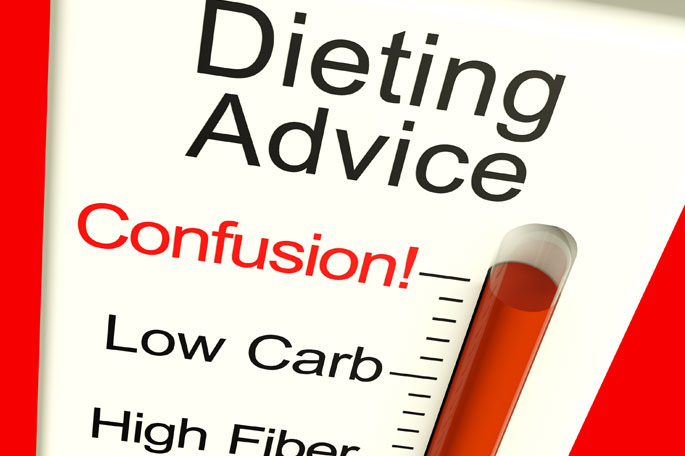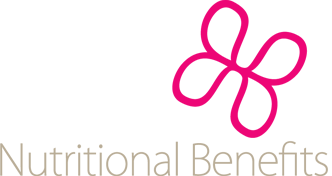Confused about sugar now?
June 28, 2014

Sugar hit the headlines again this week
Sugar hit the headlines again this week, and BBC Radio Berkshire and BBC Radio 5 Live asked me to make some sense of it for their listeners, listen here. Here’s what we talked about.
Background
In a bid to curb climbing obesity levels, UK Government scientists are now recommending that people halve the amount of added sugar they consume every day. So what does added sugar include? This is where it gets difficult but let’s keep it as simple as we can.
Natural sugars can be classed as derived from milk and whole fruits. Added sugars would include honey, sugar and even commercial fruit juices. They would most likely be found in processed foods and drinks such as breakfast cereal, cakes, biscuits, sweets, fizzy drinks, squashes and fruit juice, as well as some surprising sources like low fat yogurts which are high in added sugar (to make them taste good in the absence of fat!).
New Recommendation
The World Health Organisation (WHO) has said that people should get just 5% of their calories from all sugars which is different from added sugars! Poor consumer trying to navigate all the different recommendations! Don’t worry I will give you a few simple rules to follow.
The old recommendation of 10% of daily calories as sugar works out about 50g (12 ½ teaspoons) for women and 70g (17 ½ teaspoons) for men. So to reach the new 5% recommendation we need to halve these to 25g and 35g respectively.
How can you work this out when shopping?
Naturally occurring and added sugars are lumped together on the food label. First of all look at “Carbohydrates of which sugars” and make sure that the sugars are a maximum of 15g per 100g and ideally 5g per 100g. For the ones nearer 15g check the ingredients list and see where the sugar is coming from. If the first ingredient is sugar you know it’s added and too much! The sugar might be coming from lactose in milk which is a natural sugar under the new guidelines.
Here are some examples
| Food Name (serving size) | Sugar per 100 g/100 ml | Teaspoons per serving |
| YOGHURTS | ||
| Actimel strawberry (100 ml) |
11.6 g |
3 |
| Mueller fruit corner strawberry (150 g) |
14.9 g |
5.5 |
| DRINKS | ||
| Coca cola (500 ml) |
10.6 g |
13.25 |
| Lucozade (500 ml) |
8.7 g |
11 |
| Capri Sun Blackcurrant (200ml) |
12.2 g |
6 |
| Water (500 ml) |
0 g |
|
| BREAKFAST CEREALS | ||
| Crunchy Nut Cornflakes (40 g) |
35 g |
3.5 |
| Oats (40 g) |
1.1 g |
0 |
| SNACKS | ||
| Nairns oat biscuits (two oatcakes) |
1.3 g |
<0.25 |
| Eat Natural bar |
5.8 g |
3 ¼ |
| Dairy Milk (49 g) |
56.7 g |
7 |
Some suggested swaps to reduce sugar intake:
As adults, it is easy for us to start to do this and over time buy fewer processed items.
- Swap a low fat/diet fruit yoghurt with a full fat live yoghurt with fresh fruit and you have reduced your added sugars by about 3 teaspoons
- Make snacks savoury: swap a flapjack (32g/100g) for a couple of oat cakes (1.3g/100g) with sugar-free nut butter
For our children, we need to make sure we’re not buying foods with high added sugar for them. We work so hard to wean them healthily and then somewhere we start introducing sugar as a ‘treat’. They don’t need to develop a sweet tooth or see sugar as a reward, they are too young after all to get in the car, go to the supermarket and buy all these processed foods themselves, so why do we do it for them? Many child targeted breakfast cereals are high in added sugar, so try to encourage children to have porridge or Weetabix instead.
One of my biggest bugbears is that children do not need energy drinks when playing sports. They have loads of energy and are meant to run around!!! They just need water to rehydrate them. There are ELEVEN teaspoons of sugar in 500ml of Lucozade! Teenagers get 40% of their daily added sugar from soft drinks. Again we need to educate them and start young with them. I don’t routinely buy soft drinks. If they are thirsty there is water in the tap, and this has also been highlighted this week in the media – we should offer only water at mealtimes and drink it ourselves to set a good example.
6 simple things you can do to reduce your sugar intake:
- Ideally only eat processed foods that contain 5g sugar per 100g or less
- Don’t go above 15g sugar per 100g and then watch your portion size
- Check labels for hidden/added sugars – especially low-fat/diet foods
- Switch to water for meals
- Eat whole fruits rather than fruit juice
- Don’t switch to sugar-free options containing sweeteners such as aspartame – your body still thinks it is sugar!
What’s all the fuss about fruit juice?
Surely fruit juice is healthy? Full of vitamins? Sadly commercially produced fruit juices have been pasteurised and all the fibre removed. All that is left is fructose. We don’t metabolise fructose as well as glucose, in fact we have to convert it into fat in the liver before we can use it for energy. Some would argue that a high fructose diet is the cause of fatty liver. Eat the whole fruit, or if you can afford it use a proper juice extractor and combine fruits with vegetables to make a fresh, nutrient rich juice.
There is building evidence that high sugar intake is linked to the rise in weight gain, diabetes, heart disease and other illnesses. We need to take action now and prevent these conditions for ourselves and families.
If you would like more advice and support to reduce your sugar intake, please contact me. I specialise in providing personally tailored nutrition programmes to suit individuals and their needs.
| Laura de la Harpe is a qualified, professional nutritional therapist, and one of only a limited number of qualified Metabolic Balance® coaches in the UK. She appears regularly on BBC Radio 5 Live as a ‘Midnight Expert’ on all things about nutrition. Through the application of nutrition science, and an understanding of how the body works, Laura supports her clients through a nutritional change programme that brings improved health, weight loss and relief from a range of symptoms. Change your life… one mouthful at a time. |
| Contact or follow Laura ?www.nutritionalbenefits.co.uk ? 0118 946 4773 ?facebook /metb4life ?twitter @metb4life |
Specific results are not guaranteed. Results of each nutrition programme may vary.






